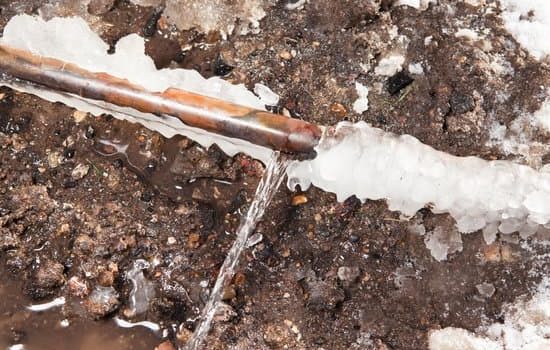During cold temperatures, ruptured pipes are the leading cause of property damage, which can cost up to 5,000 of water damage to repair. So what can you do to prevent a pipe from bursting into your home?
Keep the Heat On. If you or your tenant plans to leave for a long time, make sure to leave your home set to a temperature no lower than 55°F. Although it may be challenging to convince your tenant to leave the heat on, encourage them by informing them that leaving the heat on can prevent pipes from freezing, and if it bursts, it can cause damage to their possessions.
Keep garage doors closed, especially if you have water supply lines in your garage. Often, plumbing is routed through this space, leaving it vulnerable to damage during the wintertime.
Let cold water drip from your faucet. When a pipe freezes, the pressure is created between the blockage and the faucet that causes the pipe to burst. Allowing cold water to drip from the faucet in your home relieves the pressure, preventing it from building up and the pipe from bursting.
Insulate Exposed Pipes. Watch out for pipes in unheated areas—for example, your attic, basement, or crawl space. A basement may stay well below freezing year-round, even in warmer climates! Gauge the temperature—and act accordingly. Any piping located in areas that could go below freezing should be insulated with insulation sleeves/wrapping.
Open Your Cabinets. Keep warm air circulating your plumbing by opening your cabinets. This will keep your pipes warm during cold nights, despite the low temperatures.
What to do if a pipe is already frozen
- Check the affected area for leaks after thawing to ensure your pipe freeze didn’t damage your pipes.
- If a pipe is already frozen, it is essential to thaw it immediately. Make sure to shut off the water to the house before starting to thaw the pipe; it will prevent any potential flooding if the pipe has damage.
- Avoid using a high-intensity heater such as a blow torch, as these can damage the pipes. Instead, use a space heater or a hairdryer to blow hot air into the area and thaw the ice. Keep in mind, pipes that are warmed too fast may break.
In addition to frozen pipe prevention, be sure to monitor your water quality during these cold months. As the temperature drops, make sure you’re taking the necessary precautions to winterize your water pipes. If you notice any changes in your water’s taste, you can schedule a Free Water Analysis with Houston Water Solutions. Stop letting winter prevent you from getting the water you deserve; take the proper measures to protect against frozen pipes.
